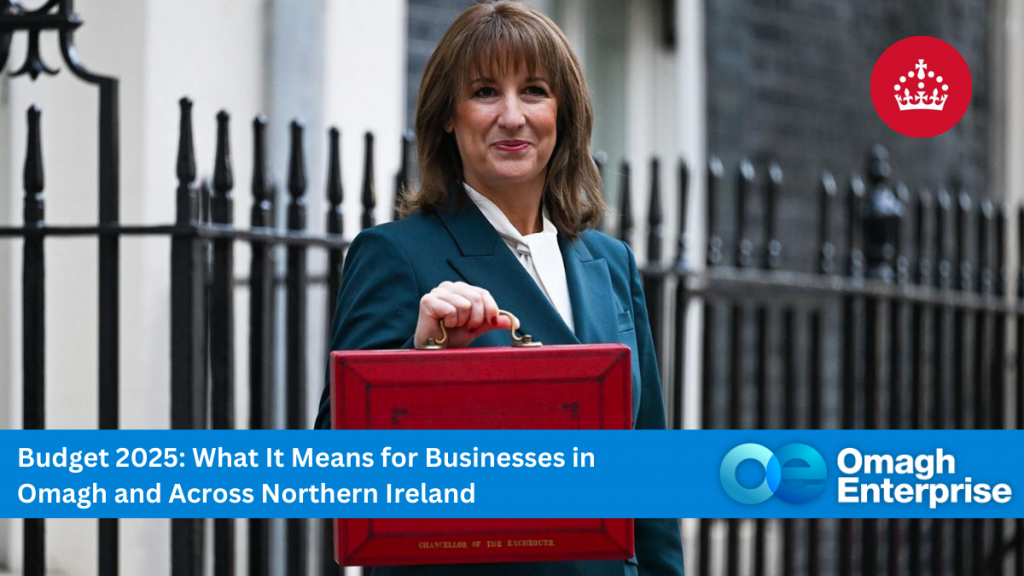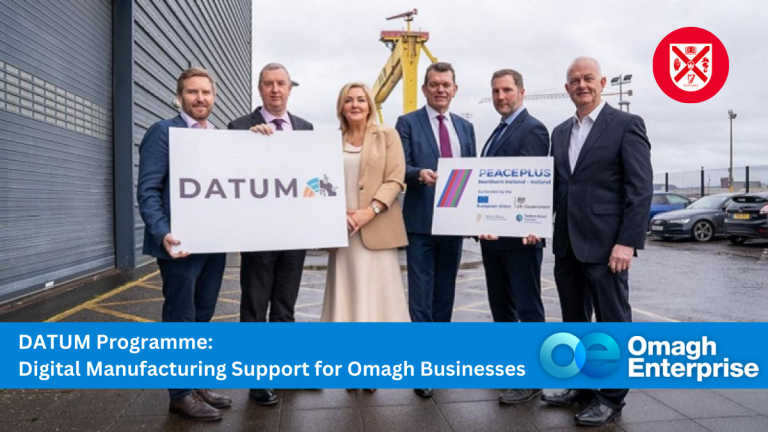Chancellor Rachel Reeves delivered the 2025 Budget on 26 November, setting out a range of measures that will directly affect businesses in Omagh and throughout Northern Ireland. Below is a localised summary to help you understand the key changes.
Economic Forecasts
Growth remains steady, with GDP expected to sit between 1.4%–1.5% from 2025 to 2029. Government debt is forecast to fluctuate around 83% of GDP, while borrowing is projected to fall from 3.5% in 2026–27 to 1.9% by 2030–31.
Funding for Northern Ireland
The NI Executive will receive an extra £370 million through the Barnett formula.
To boost trade opportunities for NI businesses — including those in the Fermanagh & Omagh area — £16.55 million will be invested over three years to create a one-stop-shop to help firms navigate the Windsor Framework and unlock UK and EU market access.
Additional commitments include:
-
£30 million for R&D along the Belfast–Derry/Londonderry Corridor, focusing on cybersecurity and digital tech.
-
Confirmation that advanced manufacturing, including photonics and biotechnology, remains a priority sector for the NI Enhanced Investment Zone.
-
UK Government support for the NI Executive to remove the two-child limit for Universal Credit if it chooses, and to raise the State Pension by 4.8% from April 2026.
Minimum Wage Increases (from 1 April 2026)
-
£12.71 – Over 21s
-
£10.85 – Ages 18–20
-
£8.00 – Ages 16–17 & apprentices
Full details: See minimum wage rates increase from 1 April 2026.
Taxation and Income
-
Income tax and NI thresholds frozen until 2028.
-
New property income tax bands from April 2027:
-
22% basic rate
-
42% higher rate
-
47% additional rate
-
-
Dividend tax increasing from 6 April 2026 (ordinary rate 10.75%, higher rate 35.75%).
-
ISA changes: from April 2027, annual ISA cash limit: £12,000 within the £20,000 overall limit.
Pensions
-
State Pension rises 4.8% from April 2026.
-
Salary sacrifice pension contributions will face NI charges above £2,000 a year from April 2029.
NICs Overseas
From April 2026, voluntary Class 2 NICs for periods abroad will end; Class 3 will require 10 years of continuous UK residency or NICs.
Trade & Imports
-
Customs duty relief removed on goods under £135 from March 2029.
Investment Schemes (VCT & EIS)
Investment limits will rise significantly from April 2026, but VCT income tax relief will fall to 20%. Changes will be legislated in the Finance Bill 2025–26.
Soft Drinks Industry Levy
Threshold lowered to 4.5g sugar per 100ml; exemptions for milk-based sugary drinks removed. Changes take effect 1 January 2028.
Corporation Tax Penalties
Penalties for late returns double from April 2026.
Gambling Taxes
-
Remote Gaming Duty rises to 40% (from April 2026).
-
A new 25% Remote Betting Rate from April 2027.
-
Bingo Duty abolished from April 2026.
Tobacco, Vaping & Alcohol Duty
-
Tobacco duty rises above inflation; alcohol duty rises with RPI.
-
Vaping Duty starts 1 October 2026 (£2.20 per 10ml).
Fuel & Transport
-
Temporary 5p fuel duty cut extended to September 2026, then reversed in three steps.
-
Fuel duty uprated by RPI from April 2027.
-
A new Electric Vehicle Excise Duty (eVED) mileage charge arrives in April 2028.
Vehicle taxes rise with RPI from April 2026.
Employee Car Schemes & EVs
-
Benefit in Kind changes for employee car ownership schemes delayed to 6 April 2028 (with transitions to 2031).
-
Temporary tax easement for PHEVs from 2025–2028.
-
Additional £1.5bn committed to DRIVE35, and £1.3bn for Electric Car Grants to 2030.
Employee Ownership Trusts
Capital Gains Tax relief on disposals to Employee Ownership Trusts drops from 100% to 50% from 26 November 2025.




